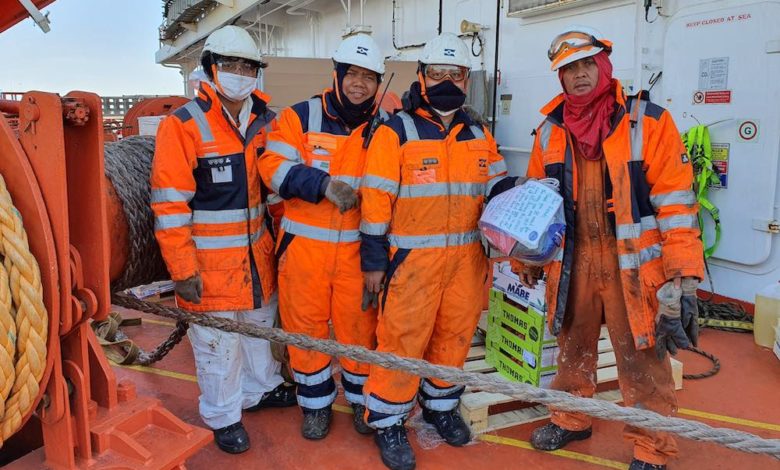Join the DotS on the Day of the Seafarer

Sunday marks the International Day of the Seafarer. Who better to write for Splash on the topic than Steven Jones, the founder of the Seafarers Happiness Index?
As we all celebrate, commemorate, commiserate, or whatever is appropriate for the Sunday’s International Day of the Seafarer (DotS), it seems a good time to reflect on the current situation as the net of what is acceptable seems to be closing in on the industry. The big question is whether the power of ESG will compel positive industry change, or are we trapped in an ever-downward spiral until people just stop wanting to go to sea at all?
It seems the difficulties in decarbonising shipping stand in almost inverse proportion to the ease which with we have dehumanised the industry. Now, of course, decarbonisation and prioritising crew welfare and social impacts are not mutually exclusive. However, they do have a symbiotic relationship, as seafarers are vital to making it all happen. So, the time has come to better understand and stress the importance of humans at sea, and the need to make life better for them.
We have seen seafarers demonised, criminalised, ignored and even discarded. A once proud profession in limbo awaiting either obsolescence or, less likely, investment, vision and true improvement.
This brings us back to joining the DotS, a day which is less a firework more a flare sent into the sky to herald the fact that our souls at sea need saving. They need rescuing from apathy, stupidity, arrogance and obliviousness of too many ashore. They need to be understood, supported, recognised and heard.
So how do we make that happen? Well, it is not easy. We have had 50 years of sharpened accountant pencils and flipped lawyer’s pads looking to chip away at what the very hard of the profession, drawing us down to the lowest allowable crewing levels of minimum “safe” manning. Draining the last vestiges of enjoyment from so many companies. Not all, granted, but so, so many.
Today it is not even just about whether a job at sea is attractive, it is about whether it will even remain a career. We now have the technological sword of Damocles hanging by a thread as occupations hang in the balance. The promised idyll of autonomy looms over the horizon, though never quite cresting.
Autonomy is shipping’s Tantalus, trapped in a state of unfulfilled desires and the eternal frustration of seeking something that remains perpetually elusive. Companies are desperate to slurp on the cool waters of AI ships, but the reality seems to just recede just out of reach.
This is rather awkward, as it means that shipping still relies on people. The dreams of industry to do away with seafarers always seem to be edging closer, but not actually quite arriving. Though there are so many young mariners who question whether their jobs will even exist by the time they become Master or Chief.
But enough of myths and legends, what about the real lives of those at sea? Alas, there is much to be done. So, where to start? Well, one issue which is a constant frustration has been the snapped elasticity of negative change.
During covid there were of course obvious and accepted issues surrounding the likes of crew changes, time onboard, contract lengths and even wages. The reality for seafarers was an erosion of conditions. Crew changes were delayed, time onboard extended, contracts were less conducive, and wages began to drop.
While we are now thankfully past covid, what we see is difficulty in getting back to where we once were. It seems we have exceeded the elastic limit of change, and now these areas of operational reality and fundamentals of employment seem stuck at a lower level than previously. What goes down, does not seemingly have to go up!
For too many seafarers there is now the nagging sense that it is normal for crew changes to be stretched out a little longer. Uncertainty is the pervading sense, with a resigned and grudging acceptance that they are more than likely to be trapped on board longer than they expected, even now movement is open once more.
It is not just about relief and a chance to go home, contracts are changed or ignored, and the issue of remuneration becomes ever more problematic. Whether from the in extremis of non-payment through to the drip, drip impacts of cuts, rising tax, costs of living rises and the harsh realities of inflation.
So, the clear dots that are joined, show a picture of employers who were very quick to react to the pressures of covid while seafarers took up the slack. That was then, but conditions have been far slower in returning to the levels of the past. The datum line was lowered, and now readjustment is from a lower bar, which is perhaps always the way.
Standards of welfare and employment are all too easy to change downward, but far slower to return and improve. That seems to be the lot of seafarers even on their special day.
